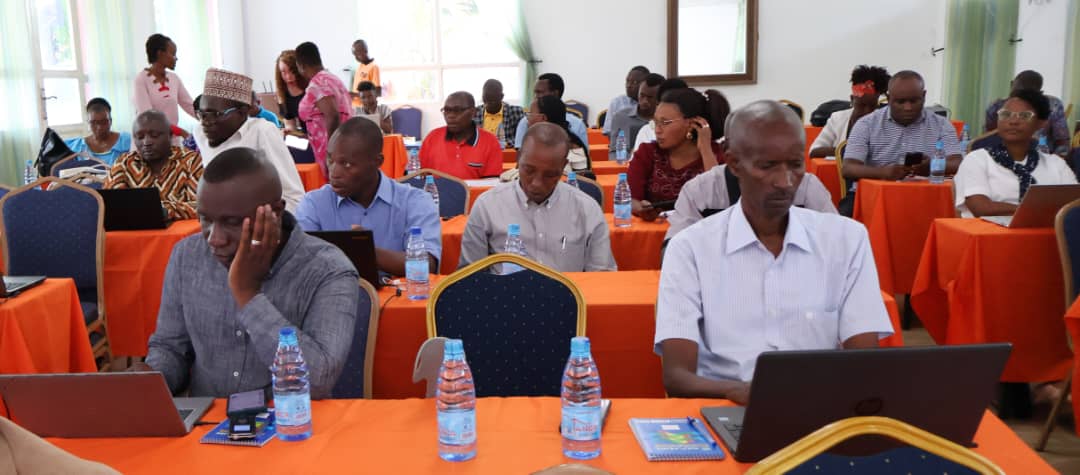BUJUMBURA, February 12th (ABP) – The Ministry of National Solidarity, Social Affairs, Human Rights and Gender, in collaboration with UNICEF, organized, on Tuesday, February 11, 2025, a workshop to validate the national strategic policy for the promotion and protection of the rights of people with disabilities in Burundi for the 2024/2027 period.
The permanent secretary of the ministry in charge of human rights, Pontien Hatungimana, indicated that the national strategic policy for the protection and promotion of the rights of people with disabilities in Burundi, proposes orientations and strategies to be implemented to promote the rights of the aforementioned persons. And this, in order to realize its vision of an inclusive society where persons with disabilities enjoy their fundamental rights and access to basic social services for their well-being.
He indicated that the strategic principles of the policy are described in 11 strategic action guidelines, namely, among others, strengthening the coordination and reliability of data on the theme of people with disabilities, strengthening the legal and institutional framework, ensuring access to inclusive education, promoting access to employment and improving access to health care.
According to him, through transformational and visionary leadership, the government of Burundi, via the ministry in charge of social protection, is strongly committed to strengthening the human rights of the Burundian population in general and those of the disabled people in particular, through synergistic interventions. The interventions in question, which involve several actors, are likely to induce perceptible results in order to guarantee to the person living with disabilities, a sustainable socio-economic development based on the respect for their rights, he insisted.
For this, added Hatungimana, the new vision of Burundi as an emerging country by 2040 and a developed country in 2060, will guide policies and strategies for sustainable development, in order to meet the needs of present and future generations.

According to the head of planning, monitoring and evaluation at UNICEF, Beifith Kouak Tiyab, the number of people with disabilities represents more than 15% of the population in each country. He specified that UNICEF estimates that there are more than 240,000,000 children living with disabilities in the world. In Burundi, he said, these children living with disabilities are estimated at around 627,000.
According to him, these figures show the extent of the challenges to be met. To do this, efforts must be combined to ensure the effective inclusion of all people living with disabilities in society, by ensuring them equitable access to essential services, including health, education, protection and community participation, he added.
He indicated that UNICEF, like other United Nations agencies, is committed to supporting the development of strategic documents, such as national policies and strategies, in order to ensure sustainable and significant change, support the implementation of an inclusive education strategy, ensuring that every child, regardless of their disability, can learn in an adapted environment. He noted, in this regard, that UNICEF supports some school rehabilitations to improve their accessibility, so that school infrastructure meets universal accessibility standards.
As for the deputy chairperson of the National Committee for the Promotion and Protection of the Rights of Persons with Disabilities in Burundi (CNPDH), Sister Anne Marie Mushiranzigo, the strategic policy for the promotion and protection of persons with disabilities aims to respond to the specific challenges faced by persons with disabilities, such as discrimination, inaccessibility and lack of participation.
According to her, this policy is structured around essential guiding principles, namely equality and non-discrimination, participation and social inclusion, universal accessibility, empowerment and dignity, Mushiranzigo said. She also defined priority strategic axes, such as strengthening the legal and institutional framework to improving access to education, employment, health care, and mobility, Mushiranzigo stressed.

